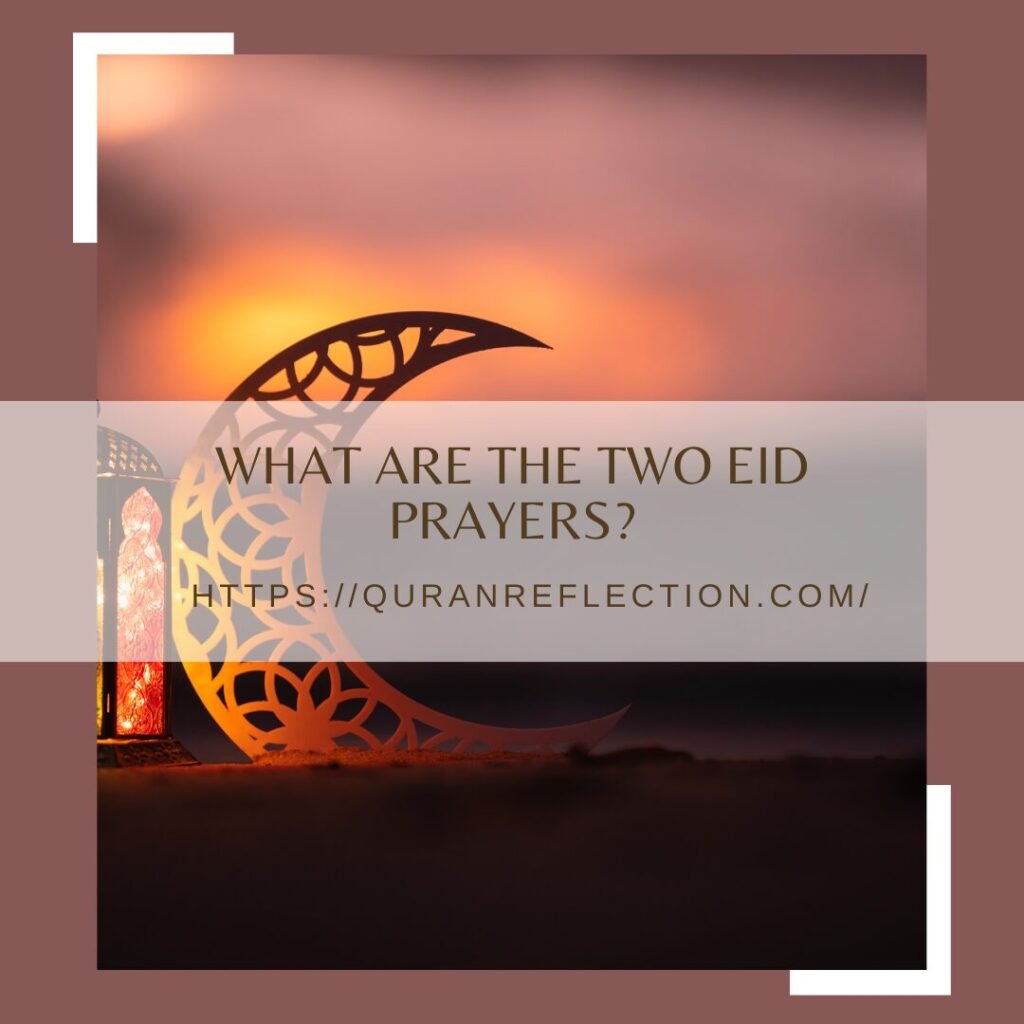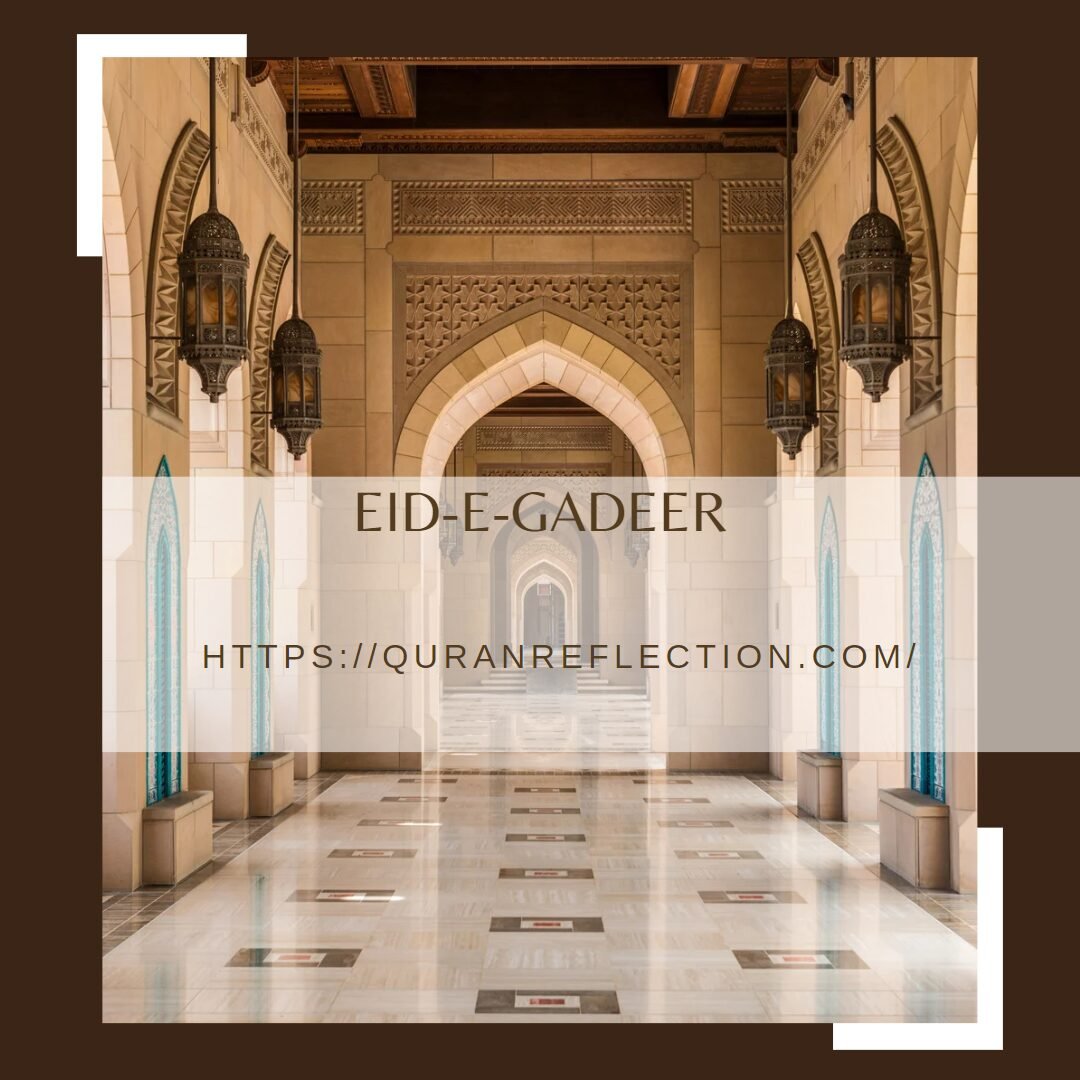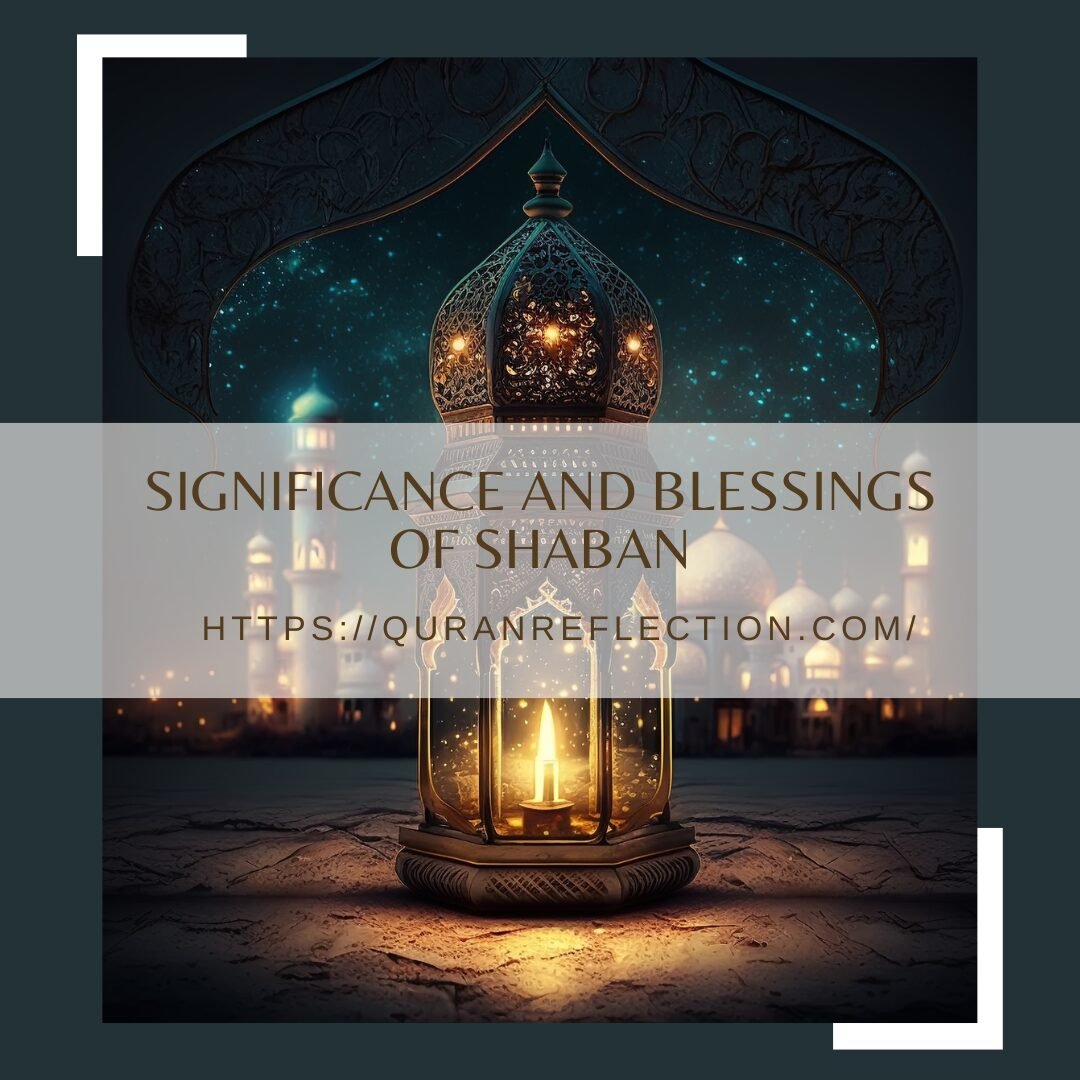What Are The Two Eid Prayers?
Introduction:
Eid, the joyous occasion that marks the result of fasting in Ramadan, is well known with splendid fervor and exuberance among Muslims globally. at the heart of Eid festivities are the unique prayers referred to as Eid prayers, which keep titanic significance in the Islamic lifestyle. These prayers referred to as Eid-ul-Fitr and Eid-ul-Adha, are distinct in their observance, yet both function as powerful symbols of solidarity, gratitude, and devotion in the Muslim network.

Eid-ul-Fitr Prayer:
the first of the two Eid prayers is Eid-ul-Fitr, which is well known at the end of the holy month of Ramadan. It falls on the primary day of Shawwal, the month following Ramadan, and is a day of gigantic rejoicing and thanksgiving. The Eid-ul-Fitr prayer is obtainable in the congregation, usually in an open area or large mosque, quickly after sunrise. It includes two rak’ahs (gadgets of prayer) and is executed with additional Takbir (declarations of the greatness of Allah).
Observance of Eid-ul-Fitr:
Eid-ul-Fitr starts offevolved with the purification ritual of ghusl (ritual bathing), accompanied by the consumption of dates or chocolates to break the month-long rapid of Ramadan. Muslims then collect for the Eid prayer, wearing their finest apparel, symbolizing the pleasure and gratitude of the event. The prayer is led by an Imam and includes a sermon that emphasizes the themes of gratitude, forgiveness, and charity. After the prayer, Muslims alternate greetings of “Eid Mubarak” and interact in festive sports, including feasting, giving presents, and traveling with pals and family. Read More: What Is The Short But Most Powerful Dua
Importance of Eid-ul-Fitr:
Eid-ul-Fitr holds profound religious and social significance in Islam. It marks the successful completion of fasting throughout Ramadan, symbolizing purification, and renewal. moreover, Eid-ul-Fitr emphasizes the significance of charity and compassion towards the much less fortunate, as Muslims are recommended to offer Zakat-ul-Fitr (charity) to make certain that everyone can partake in the festivities. moreover, Eid-ul-Fitr fosters a sense of cohesion and camaraderie within the Muslim community, as people from numerous backgrounds come together to celebrate the benefits of Allah.
Eid-Ul-Adha Prayer:
The second Eid prayer is called Eid-ul-Adha, additionally known as the pageant of Sacrifice, and it commemorates the willingness of Prophet Ibrahim (Abraham) to sacrifice his son Isma’il (Ishmael) as an act of obedience to Allah. Eid-ul-Adha falls on the 10th day of Dhu al-Hijjah, the final month of the Islamic lunar calendar, coinciding with the result of the Hajj pilgrimage in Mecca.
Observance Of Eid-Ul-Adha:
Eid-ul-Adha starts offevolved with the performance of Fajr (dawn) prayers, followed by the sacrifice of an animal, commonly a sheep, goat, cow, or camel, in remembrance of Prophet Ibrahim’s sacrifice. the beef from the sacrificed animal is split into 3 components: one for the family, one for the household and buddies, and one for the needy. After the sacrifice, Muslims gather for the Eid prayer, which consists of rak’ahs and is done in addition to the Eid-ul-Fitr prayer.
Importance Of Eid-Ul-Adha:
Eid-ul-Adha embodies the spirit of sacrifice, obedience, and submission to the desire of Allah. It serves as a reminder of Prophet Ibrahim’s unwavering religion and willingness to sacrifice everything for the sake of Allah. The act of Qurbani (sacrifice) symbolizes Muslims’ willingness to surrender their dreams and possessions in obedience to Allah’s commands. moreover, Eid-ul-Adha reinforces the importance of compassion and generosity toward others, in particular the much less fortunate, as the distribution of meat guarantees that everyone can partake in the joyous event.
Conclusion:
In conclusion, Eid-ul-Fitr and Eid-ul-Adha are two of the most significant and joyous occasions in the Islamic calendar, marked using special prayers that embody the middle concepts of Islam. Eid-ul-Fitr celebrates the result of Ramadan with gratitude, charity, and harmony, even as Eid-ul-Adha commemorates Prophet Ibrahim’s sacrifice and underscores the significance of obedience, sacrifice, and compassion. each Eid prayer functions powerful reminder of the spiritual values and teachings of Islam, fostering a sense of network, devotion, and gratitude among Muslims globally.
FAQ:
Q1. What is the significance of Eid prayers in Islam?
Ans: Eid prayers hold massive significance in Islam as they represent gratitude, cohesion, and devotion. They provide a possibility for Muslims to return together in prayer, mirrored images, and birthday parties, reinforcing their religion and feel of network.
Q2. Can ladies attend Eid prayers?
Ans: Yes, girls are encouraged to wait for Eid prayers, and it’s far an endorsed practice in Islam. but, they have the choice to pray at domestic if they decide, mainly if there are no suitable facilities or arrangements for ladies at the prayer venue.
Q3. What should one recite at some stage in the Eid prayers?
Ans: During the Eid prayers, Muslims recite Takbir (declarations of the greatness of Allah), glorify Allah, and offer supplications for blessings, forgiveness, and guidance. moreover, they recite the customary prayers and pay attention attentively to the sermon brought via the Imam.
Q4. How can Eid be celebrated?
Ans: Eid has to be celebrated with gratitude, generosity, and pleasure. Muslims interact in acts of charity, exchange greetings and items, go to friends and circles of relatives, and partake in festive meals. it is also a time for reflection, prayer, and looking for forgiveness from Allah.
Q5. What’s the ruling on fasting on Eid day?
Ans: It’s miles forbidden to fast on Eid-ul-Fitr because it marks the end of Ramadan, the month of fasting. but, fasting on the day of Eid-ul-Adha is discouraged, as it’s miles an afternoon of birthday celebration and feasting following the sacrifice.
Q6. How can non-Muslims participate in Eid celebrations?
Ans: Non-Muslims can participate in Eid celebrations employing extending greetings, becoming member of festive food, and showing support and respect for their Muslim friends and acquaintances. They can also find out about the importance of Eid and its customs to better understand and appreciate the diversity of spiritual traditions.










